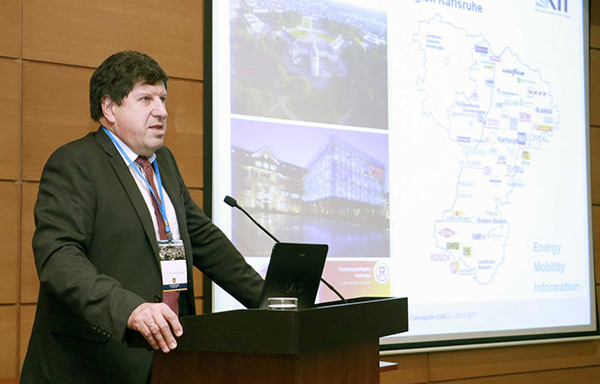Newsletter and Contact | Legals | Privacy Policy

The virtual Institute of Eco-Industrial Development (IECO) invites you to its second Summer School, from November 18 to 25, 2023. Hosted by the Universidad de Concepción in Chile.
IECO is a multilateral institute for study, research, and innovation in the fields of industrial ecology and circular economy in Germany and Chile. Its interdisciplinary topics range from bioeconomy and circular economy to geothermal energy and sustainable land use. Several of those topics will be covered during the summer school.
The Summer School is aimed at advanced students (Master and PhD), particularly those who are enrolled at one of the IECO partner universities (Karlsruhe Institute of Technology, Universidad Austral de Chile, Universidad de Concepción, and Universidad de Chile) and who are interested in implementing sustainable ideas in the development of industry, urban landscapes, and rural areas.
Interested students from other universities are also welcome to apply.
The IECO Summer School is funded by the DAAD.
What is Eco-Industrial Development?
Improving the sustainability of industrial activities is currently a major challenge. The approach of Eco-Industrial Development (EID) aims to increase sustainability in the entire industrial system by treating industrial parks as ecosystems, where companies are considered species that co-exist in ecosystems by exchanging substances and energy (industrial symbiosis). That way, inter-company opportunities to reduce waste, reuse waste heat, and lower net energy consumption can be exploited. Based on this principle, industrial and urban systems can also be interlinked to achieve similar benefits.
About the Summer School
The Summer School addresses different elements of the entire research cycle, from basic research to innovation management and technology transfer to industry. Through lectures and workshops, theory and practice are combined and supplemented by field trips and excursions to industrial locations and start-ups in EID, so that students learn and experience the basic theory and application perspectives for each of the topics in one day.
Several EID topics will be addressed during the multidisciplinary event, such as sustainable use of biomass, sustainable land use, water-energy nexus use, and urban industrial development, taught by scientific experts from Chile and Germany.
The program of the Summer School will be complemented by cultural and social events, contributing to enhance German-Chilean friendship.
The entire program will be held in English.
Please find further information regarding the content of the Summer School as well as the application process on the following website: https://www.ifr.kit.edu/ieco_summerschool.php
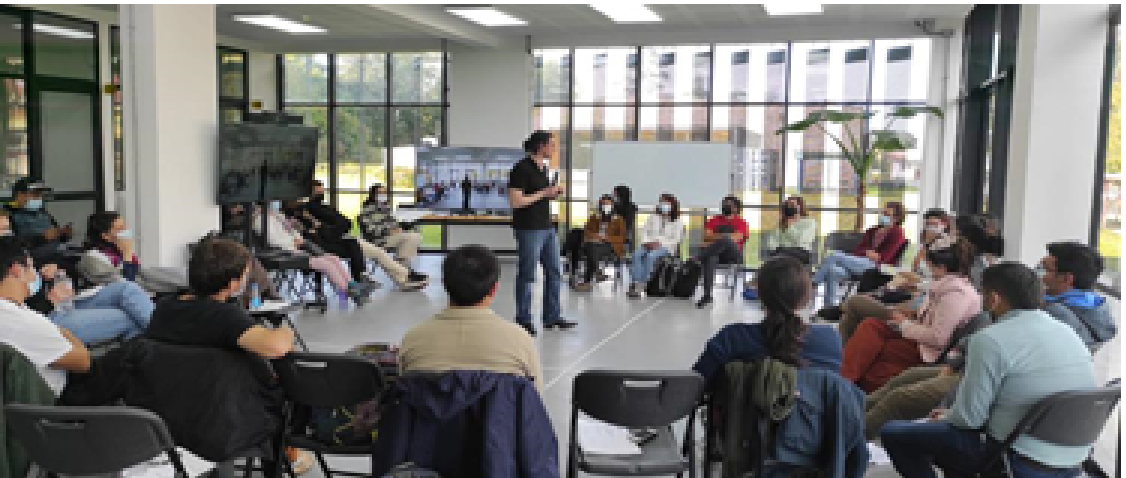
Successful conclusion of expert and stakeholder workshops: "Key factors for the transformation towards a circular and integrated water-waste-energy system in urban areas of Chile - Valparaiso Region"
On Thursday, April 14, the workshop entitled "Analysis of key factors for the transformation towards a circular and integrated water-waste-energy system in urban areas of Chile - Valparaiso Region" took place at the Recreo campus of the Universidad de Viña del Mar in Chile. The workshop was led and organized by the Institute for Technology Assessment and Systems Analysis (ITAS) of the Karlsruhe Institute of Technology (KIT), within the framework of the research project "Transformation towards a sustainable circular water-waste-energy system in new urban areas of Chile". The expert workshop also had the institutional support of the Housing and Urbanism Service of Valparaíso - Chile (SERVIU) and IECO – German-Chilean Institute of Eco-Industrial Development, as well as the Environmental and Natural Resources Engineering Career of the University of Viña del Mar.
Invited Chilean experts discussed and analyzed the interdependencies between the key factors for an improvement in the management of natural resources under a circular economy and the Water-Waste-Energy nexus approach. The group of experts was made up of senior professionals from academia and Chilean-German international cooperation, specialists in the areas of waste, energy, water, circular economy and the water-energy-food nexus. Among the participants of the discussion workshop were professors Ana Lucía Prieto (Universidad de Chile), Marcel Szantó (PUCV), Roberto Leiva (Universidad Técnica Federico Santa Maria), Yunesky Masip (PUCV), Luis Cerna (Universidad Central), and Antonio Levy (German Society for International Cooperation GIZ). On behalf of the Karlsruhe Institute of Technology, the researcher in charge, Vanessa Bolivar, was present.
The case study consists of an alternative Water-Waste-Energy system for a future urban expansion (social housing complex) in Viña del Mar - Valparaiso Region, owned by SERVIU. This alternative system integrates the circular management of household organic solid waste, with a water resource management that considers the separate collection and treatment of greywater and blackwater, as well as the generation of energy and fertilizers from the mixture of organic waste and blackwater. This expert workshop was built upon the findings of a previously conducted stakeholder workshop. The latter was entitled: "Challenges and opportunities for a circular, efficient and integrated water-waste-energy management in new urban areas of Chile - Valparaiso Region" and took place on 07.04.2022 with the participation of around 20 stakeholders and experts in water, waste and energy management from the Valparaiso region and Chile. Among them were representatives of civil society, neighborhood councils, regional ministerial services (SEREMI) of Environment, Health, Energy, Superintendence of Sanitary Services (SISS), CORFO, academia, private sector among other key actors. In this first stakeholders´ workshop, the key factors necessary to achieve a transformation of the status quo towards a circular, efficient and integrated water-waste-energy management in new urban areas were identified, considering environmental, social, technical, political and market aspects.
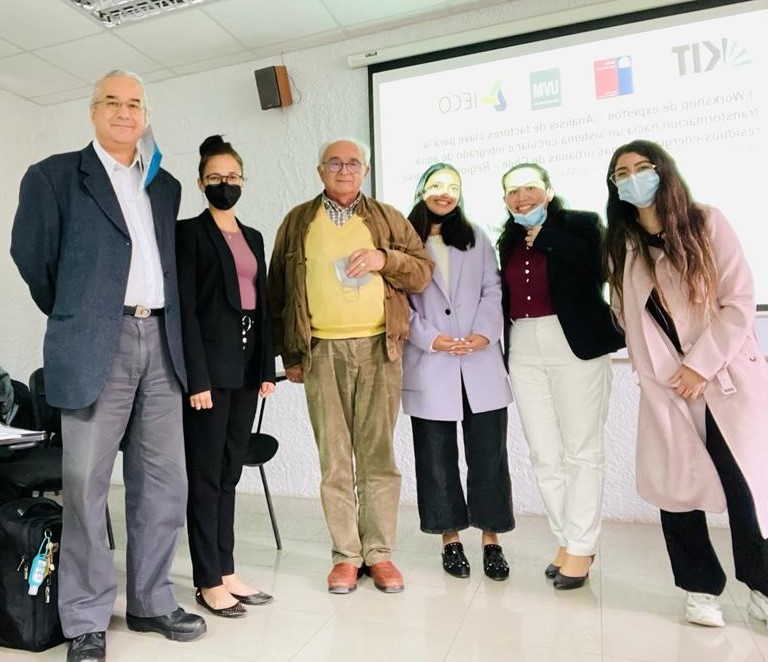
IECO Summer School 2022
The first IECO Summer School took place at Universidad Austral de Chile (UACh) in Valdivia from 27 March to 2 April 2022. During seven days, 23 advanced students from universities in Chile and Germany gathered at the Miraflores Campus of UACh, a site surrounded by vast forests and lakes, to learn about ideas and topics related to Eco-Industrial Development, a highly interdisciplinary field of study.
The courses were led by scientific experts from all four IECO universities: Karlsruhe Institute of Technology, Universidad de Chile, Universidad de Concepción, and Universidad Austral de Chile. The program consisted of lectures focusing on scientific theories, and workshops or excursions where students received hands-on experience. Moreover, one full day was dedicated to innovation management and technology transfer, including an ideation workshop and a pitching event in teams to prepare students to bring their ideas to the market.
The German and Chilean lecturers covered a broad variety of topics, ranging from Wastewater Management, Bioeconomy, Geothermal Energy, to Urban Circularity and Sustainable Land Use. As Prof. Andreas Braun, professor at KIT and IECO director emphasized, “the purpose of the Summer School was to discuss with the students a relatively new approach to the development of industrial ecology, which aims to improve the sustainability within the industry by copying ecosystemic principles or mechanisms that are very useful to reduce the environmental impact”.
During various field trips the students learned about applied sustainable solutions: At “Liquen Austral”, a start-up company in Mafil, the young entrepreneurs of the company presented an innovative way of producing natural fertilizer for the development of sustainable agriculture. During a full-day trip to the Andes, the students visited a geothermal Greenhouse Project near the Villarrica volcano in which subsurface heat sources are used to grow vegetables.
Every day was concluded by an evening program presenting German culture and the German academic system. The head of scientific cooperation at the German Embassy Anna Richter, the DFG representative Gudrun Kausel, the director of the DAAD Chile Susanne Reischmann, among others, gave insights into grant and scholarship schemes, collaboration opportunities and cultural issues.
All participants agreed that the event was a rewarding experience, both in a scientific and personal sense, with enthusiastic participation by students and lectures. It was an excellent opportunity for interdisciplinary and intercultural exchange and the creation of new ties for future academic and professional collaboration. As one PhD student put it: “The Summer School truly broadened my horizon: It was a great contribution to learn more about sustainable development processes in circular economy, integrating environmental, social and economic aspects. I also enjoyed interacting with students from other countries and making many new friends.”
The IECO Summer School was funded by the DAAD – the German Academic Exchange Program.
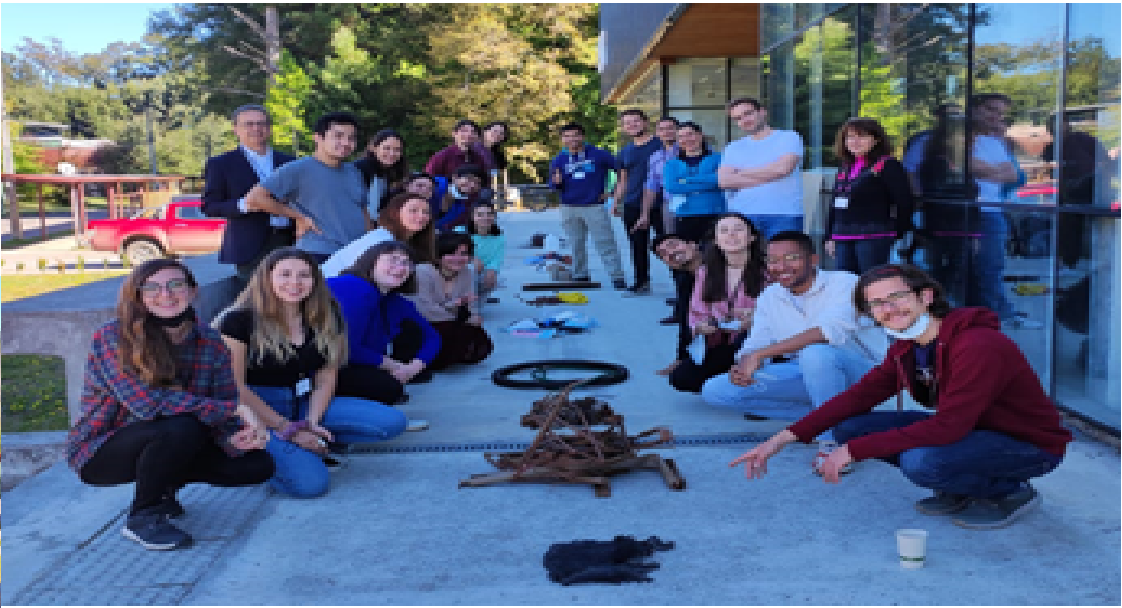
IECO at the mining exhibition EXPONOR 2022
IECO is part of the scientific task force preparing Germany's joint presentation as guest country at EXPONOR 2022 (international mining exhibition in Antofagasta, Chile), led by AHK and DAAD Chile. IECO is organizing a virtual symposium on "Mining: Circular Economy and Social Transformation." On May 11, 4 p.m. (CET), experts from each IECO partner university will speak on these topics and discuss them with the audience. From KIT, Valentin Goldberg will talk about combined raw material and fresh water production from geothermal brines.
The event takes place in English and Spanish. Please register under https://www.daad.cl/es/mineria/
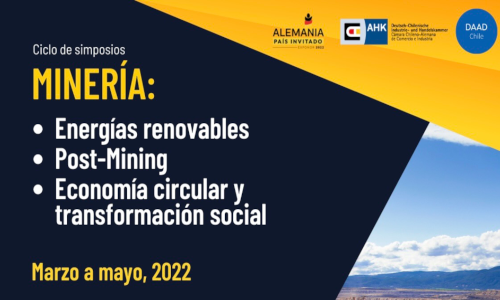
On October 5 and 6, IECO hosted its second edition of the IECO Days, a virtual Scientific and Innovation event on Eco-Industrial Development topics. Researchers from the IECO partner universities, IECO supporting partners as well as external guests attended the event.
This time, the highlight was an expert panel on technology transfer in the field of green hydrogen on day 1, discussing market potentials and political developments in Germany and Chile. The expert panel included KIT’s vice-president Prof. Thomas Hirth and Camilo Àviles from the Ministry of Energy in Chile. In a parallel workshop directed to students interested in entrepreneurship, successful Start-Ups introduced the audience to the Ideation process. Day 2 kicked off with a general session on the recent activities with in IECO, followed by parallel scientific sessions in the topics of Eco-Industrial Development.
This public event was concluded by a project internal activity on October 7, the IECO General Assembly, where advances and results of IECO were discussed with new strategic partners. After celebrating the first Steering Committee Meeting in May 2021, this was another crucial milestone in implementing the governance of IECO.
The videos of the individual sessions will be available soon on the KIT Youtube Channel. The Links will be shared here as soon the Videos are uploaded.
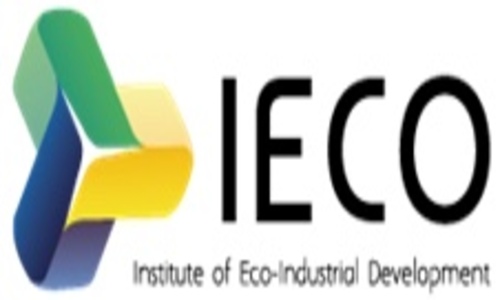
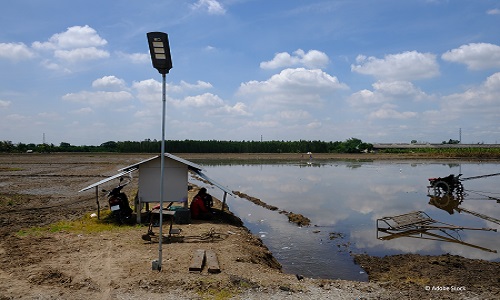
With its first Steering Committee Meeting, the BMBF funded Network project “Institute of Eco-Industrial development” (IECO) celebrated another milestone on 04 May 2021. The Steering Committee is the decisive organ of IECO and in charge of all strategic decisions. The Steering Committee consists of Institutional Representatives of the four Implementing Partners (Karlsruhe Institute of Technology, Universidad de Chile, Universidad de Concepción and Universidad Austral de Chile) as well as the project manager, Prof. Andreas Braun (KIT). At the opening of the meeting, which was held virtually due to the actual pandemic situation, Prof. Thomas Hirth, Vice President Innovation for International Affairs and Institutional Representative of KIT inside IECO, gave a few welcome remarks, highlighting the long-standing history of cooperation between the KIT and the three Chilean universities. Then, the research agenda and topics were discussed and approved, and decisions taken regarding the next steps of the project. The meeting was chaired by Prof. Andreas Braun, who was affirmed in his role as project manager by all partners.
During the meeting the plans for the IECO Network for the period 2020-2021 were discussed and the Topic's strategies and research focus were confirmed. There are many plans for the future such as writing a joint edited volume, the realisation of the IECO Days 2021 and a summer school in Chile among others.
Make sure you are subscribed to our IECO Newsletter to get informed about all developments in our network! (register under https://ieco-institute.com/contact-us.html).
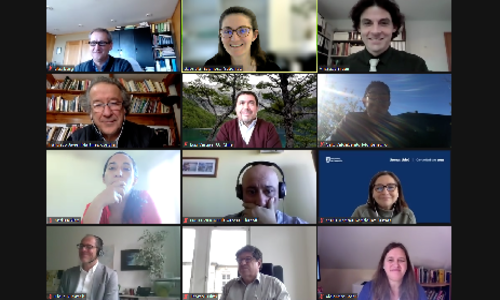
What should be included in a national strategy for the circular economy? How was the development of the circular economy in Germany from the perspective of the construction sector? What are the chances and challenges for the construction sector currently in Chile?
IECO answered these and further interesting questions in an interview by the Chilean magazine "Negocio y Construcción" short after the official launch of the Chilean National Strategy to the Circular Economy for a Zero-Waste.
The article titled "La Economía Circular y el Sector de la Construcción: Una Perspectiva Desde Alemania Sobre la Hoja de Ruta Chilena" can be read in the March special edition of the magazine (spanisch only!).
Have fun reading!
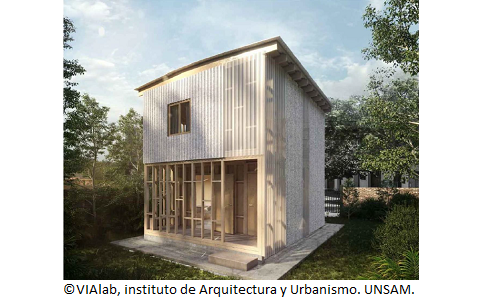
A Memorandum of Understanding was signed by KIT and SOFOFA Hub, to collaborate in the framework of IECO supported by KIT's Global Horizon Program (GHPro).
SOFOFA is a trade association representing important and diverse groups of Companies in Chile. Through its spin-off, SOFOFA Hub, it conveys firms to address common challenges through collaboration amongst them and with external startups, R&D Centers and Universities in a global innovation network.
Together as partners SOFOFA Hub, IECO and GHPro, will encourage cooperation initiatives in the field of transfer of technology and in the development of innovation and start-up potential. The goal is to support Chilean companies to address technological challenges in a collective way, supported by IECO's research network and by GHPro's knowledge of the innovation ecosystem.
We'll keep you posted on more news about this exciting collaboration!
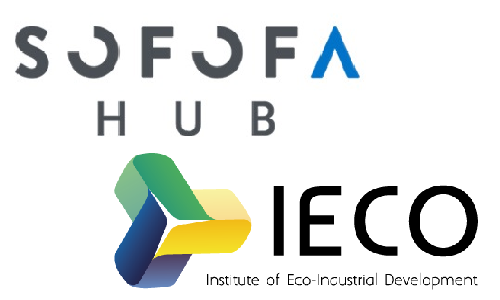
A team from the Universidad Austral de Chile (UACh) was successful in the call for the start-up accelerator program of the KIT “UpCat9” with their start-up “ChemNanoChem Life Sciences”. They belong thus to the participants of the accelerator program starting on March 1st.
The team of the UACh is composed of three young researchers: Dr. Francisco Montero Silva (founder of the start-up, biochemist, specialist in biotechnology), Cristian Eduardo Jaures Armijo (entrepreneur) and Luciano Andrés Rivera Marcos (biochemist and MBA). They are developing a technology package for measuring the physical and chemical properties of nanoparticles to support the pharmaceutical industry. Currently their technology is in the Technology Readiness Level 4 and is therefore, already validated in the laboratory scale.
Their proposal is to use specialized nanoparticles as excipients in new medicines. This could mean enhanced efficiency of the medicines, requiring less active substance per treatment. From an eco-industrial point of view, the technological advantage that these new medicines could provide, is a reduction in the amount of inputs required for chemotherapy and other chemical treatments alike as well as reduced secondary processes derived from these treatments, thus reducing the amounts of pharmaceutical waste.
With their participation in the accelerator program, they expect to further develop their business proposal. They are also interested in finding a German partner for the establishment and further development of the product itself.
The IECO team wishes ChemNanoChem Life Sciences a good start in the accelerator program and good luck in the search for German Partners!
We are looking forward to support your future German-Chilean actions.
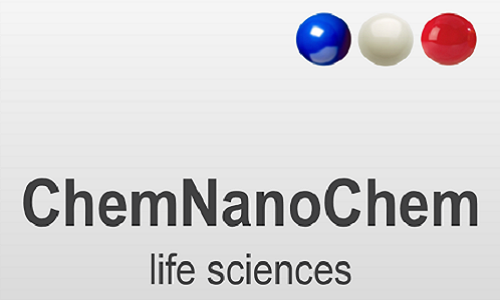
IECO was invited to collaborate with an article about eco-industrial development for the research blog of the KIT Center Humans and Technology.
The article was published in February 19th and is titled “Ecosystems as basis for industrial development - contradiction or vision?” (original title in German: Ökosysteme als Vorbild für industrielle Entwicklung – Widerspruch oder Vision?). The authors Gabriela Espinosa (KIT) and Danny Tröger (KIT) discuss how can industries use natural ecosystems as inspiration to produce more sustainably and how economic growth and sustainable development can be combined. They also provide some original examples of ongoing eco-industrial projects.
You can find the article directly here: https://www.mensch-und-technik.kit.edu/oekoindustrielle-entwicklung.php (The article is in German only!)
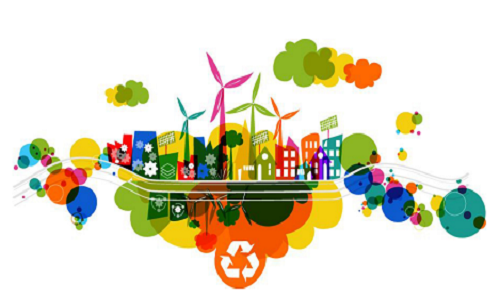
IECO creates a Chilean-German network of PhD and Master students at the IECO partner universities, who are interested in the topic of Eco-Industrial Development in a German-Chilean context.
As soon as the situation allows, we will plan social events, extra-curricular activities, invited talks, excursions and related events in order to strengthen the IECO community.
To join our mailing list, please sign up here:

IECO Summer School
The application for the implementation of a Summer School for PhD students, initiated and developed by the IECO team, was successful. The one-week IECO Summer School will be hosted by the Universidad Austral de Chile in Valdivia, one of the IECO implementing partners. The main IECO Topics are taught in lectures, interactive workshops as well as excursions to relevant project sites. An accompanying cultural program promotes an intensive exchange between the participants and strengthen German-Chilean ties.
KIT Alumni Seminar in Santiago de Chile
In addition, a KIT Alumni Seminar in Santiago de Chile is planned for the fall 2021. In a 4-day event, experts from KIT and local stakeholders will present their current research projects on the topic of "Industrial Ecology and Circular Economy" and exchange views on the topic with the Chilean alumni and other selected participants. The aim is the long-term connection of foreign alumni to KIT as well as their participation in scientific projects. This event is organized by the KIT International Office while IECO is responsible for the development of the content.
The realization of both events will depend on the pandemic-related situation in the fall of 2021.
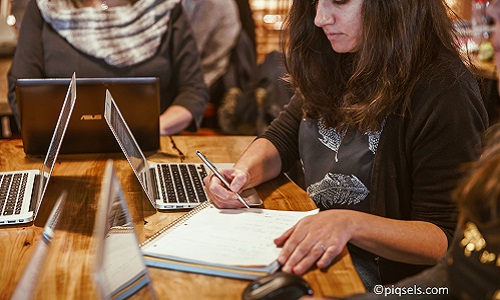
Coronactivity is a webinar series of short lectures, held by KIT staff or Latin-American KIT Alumni mostly from Argentina and Chile. Each Friday during June to July and October to December, alternately German and Latin-American researchers have presented their current research topics or projects related to Latin-America, and discussed them with the participants. The aim was to virtually keep in touch throughout the Corona crisis. Coronactivity was initiated by the Argentinean KIT Alumni Club president, Prof. Carla Allende.
On 18 December, 16:30 hr (German Time), the closing event took place and IECO Coordinator Dr. Gabriela Espinosa gave an update on IECO.
https://www.youtube.com/watch?v=VcwgR7zKJxc&feature=youtu.be
A few IECO researchers already participated in Coronactivity.
IECO Director Andreas Braun started the series and gave an introduction of the project:
Prof. Dr. Andreas Braun:
Institute of Eco-Industrial Development – IECO
https://www.youtube.com/watch?v=5D-vU2dTpps&t=16s
Prof. Dr. Frank Schultmann and PhD Tobias Zimmer:
Electricity, heat, or biofuels? A perspective on the future role of bioenergy in Chile
https://www.youtube.com/watch?v=bZ6caN2MKZo
Prof. Dr. Thomas Kohl:
The Potential of Geothermal – A renewable energy source for South America
https://www.youtube.com/watch?v=ZHMTNaEE99I
Danny Tröger:
Applied Eco-Industrial Development: The use of industrial residues for the construction of social housing in Buenos Aires (SWOT-Analyses within the strategic cooperation KIT and UNSAM)
https://www.youtube.com/watch?v=k76SQjldQBk
The entire webinar series can be found on the website of the Alumni Club Argentina: https://kitalumni.com.ar/
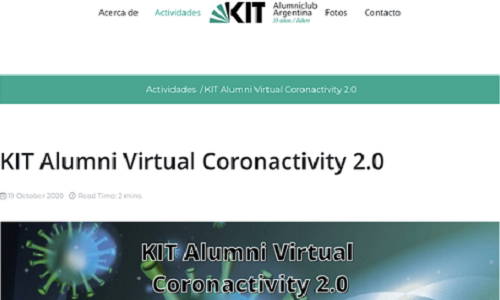
IECO and IUSLATAM (http://iuslatam.com/) are now officially partners after a Memorandum of Understanding was signed by both parties. IUSLATAM is a Chilean innovation agency, dedicated to inspire commitment, disseminate practices and facilitate the implementation of Agenda 2030 based on innovation processes and solutions in the public and private sectors. The two institutions (IUSLATAM and IECO) will aim to enable collaborative action alliances to promote research and innovation projects in the field of circular economy, integrating multi-sectoral components to provide solutions to problems of strategic interest and with a regional focus on Chile and Germany
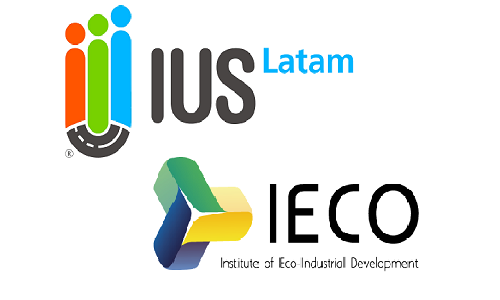
During 10thand 11th of December IECO successfully hosted a virtual Scientific and Innovation event on Eco-Industrial Development with over 70 researchers from the IECO Partner Universities as well as with numerous strategic partners and supporters.
We want to thank all of our participants and specially all of our speakers and panellists for your attendance, your interests, your questions and the great IECO spirit!
On December 10th, there were scientific workshops around the four main Topics of IECO (established topic teams) plus a general informative session for those who were new to the project (newcomers). On December 11th, it’s was all about Innovation. There was a very interesting presentation as well as a very active round table discussion as well. Below is the complete program of the event.
The participants will receive the presentations shared during the event per Email.
Additionally, you can access all videos of the presentations as a playlist in KIT YouTube Channel.
| Day | Time | Who should participate? | Activities of the day | |||
| 10. Dec Science day! | 09.00 to 11.00 hrs Chile 13.00 to 15.00 hrs Germany | Researchers interested in collaborating within IECO (newcomers) | Informative session for newcomers: researchers, PhD students and advanced Master students are welcome. Introduction to IECO, its topics and collaboration possibilities. | |||
| Researchers from established IECO Topic teams | Group work within the established IECO Topic Teams: T1 - Sustainable Usage of Water and Energy in an Urban Context T2 - Sustainable Material and Energy Transformation of Biomass T3 - Eco-Industrial Utilization of Resources from the Subsurface T4 - Urban Eco-Industrial Development in South-America | |||||
| 11. Dec Innovation day! | 09.00 to 11.00 hrs Chile 13.00 to 15.00 hrs Germany | Researchers, PhD Students, IECO Topic Teams and anyone interested in the international collaboration | 1) Introduction to the methodology “Technology Application Selection (TAS)” as a Framework for Technology Push Innovation by Dipl.-Ing. Despoina Ntagiakou (EnTechnon at KIT). Video here 2) Roundtable discussion “Innovation and technology transfer in international collaboration: Challenges and opportunities”. Panellists from the innovation community in Germany and Chile from KIT, Fokus.Energie, UdeC, CORFO, SOFOFA Hub, ProChile and IUSLATAM will discuss the topic and your questions. Video here: |
For further information, please contact the IECO coordinator at KIT: gabriela.espinosa_at_kit.edu
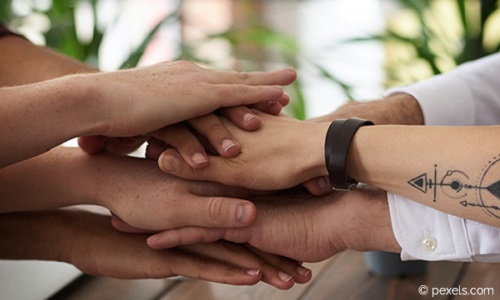
On Wednesday, May 8, 2019, AHK Chile welcomed IECO to the Advisory Board of the Eco-Mining Concepts project. In the context of the German-Chilean industrial and research collaboration landscape, Eco-Mining Concepts aims to foster the transition to greener mining. This is done by improving productivity and seeking relevant technological leaps while reducing environmental impacts and increasing the efficiency in the use of clean energy and water resources in the mining process.
The meeting and welcoming workshop was initiated with the presentation of the research project "BrineMine" by Joachim Koschikowski of Fraunhofer ISE and Dr. Thomas Kohl of KIT. BrineMine is funded by the BMBF and can contribute to the solution of the improving water poverty in northern Chile.
IECO will be represented in Chile by Dr. Diego Morata, Topic Speaker of Work Package 3 of IECO.
Further information in German and Spanish:
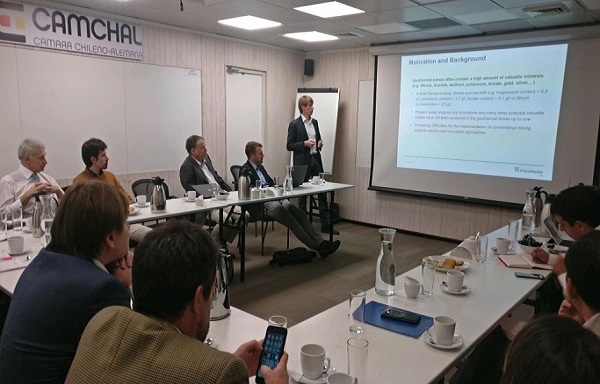
We congratulate the group of Prof. Dr. Thomas Kohl and Dr. Diego Morata of Topic III for their successful application of the project BrineMine!
BrineMine project is a 3-year research project funded by the Federal Ministry of Education and Research. The BrineMine consortium also includes Fraunhofer ISE as the leading partner, SolarSpring GmbH, and GTN Geothermie Neubrandenburg GmbH in Germany, and GTN LA, Transmark Ltd., and the Center for Solar Energy Technologies in Chile. At KIT the project is led by Prof. Dr. Thomas Kohl and Dr. Sebastian Held from the Department of Geothermal Energy at the Institute of Applied Geosciences and in Chile by Dr. Diego Morata at CEGA, also Topic Speaker of Topic III of IECO.
The project will develop, construct and operate a geothermal brine treatment system which will, together with a crystallizer, harvest minerals as well as fresh water. As prime mover the heat of the geothermal brine is utilized. From a technology perspective, reverse osmosis and membrane distillation will be focal points of this project.
The plant scale up to commercial size including cost estimations will be analyzed in the project as well as the physical and chemical conditions of the geothermal brine.
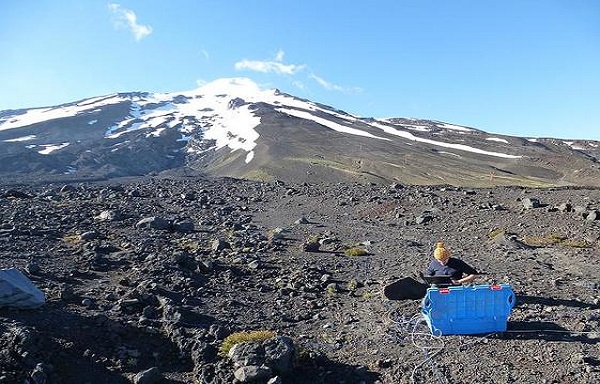
On January 9, 2019 the final workshop of the German-Chilean project "SeMoBioEnergy" was celebrated in Concepción. The workshop was organized and led by Prof. Dr. Frank Schultmann, Topic Speaker of IECO’s Work Package 2, and Mrs. Kira Schumacher. This project involves two of the three IECO-Implementing Partners in Chile, Universidad de Concepción through the Technological Development Unit and Universidad Austral de Chile. Additional partners are the University of Kassel and Fraunhofer UMSICHT. During the workshop, researchers presented the results of the project and discussed with scientific and industrial actors future research topics in the field of sustainable biomass use in Chile and Germany. During the last section of the workshop, IECO was briefly presented to stakeholders.
Further information about SeMoBio Energy:
- https://www.iip.kit.edu/english/1064_3053.php
- https://www.umsicht-suro.fraunhofer.de/en/press-and-media/press-releases/2018/SeMoBioEnergy_EN.html Further information about the workshop at: https://en.biorrefinerias.cl/semobioenergy/
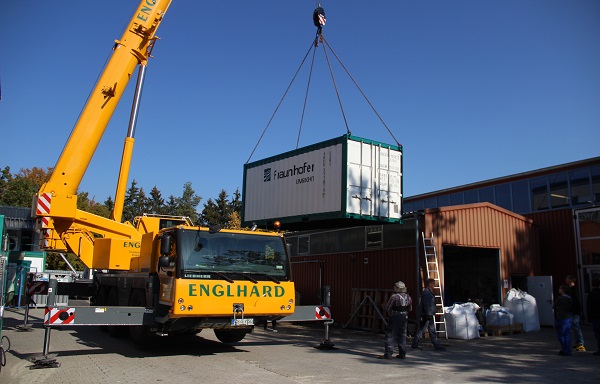
During the 23rd and 24th of November 2018, KIT and Chilean researchers from the three Chilean IECO partners (Universidad Austral de Chile – UACh, Universidad de Concepción – UdeC, and Universidad de Chile - UCH) as well as from Pontificia Universidad Católica de Chile and Universidad de O’Higgins presented their current research projects regarding energy distribution, circular economy and industrial sustainability in breakout sessions with KIT researchers. Participants exchanged research ideas and project results at a workshop in Santiago de Chile with about 22 participants, led by Prof. Andreas Braun and Dr. Fredy Ríos. As a direct result of this workshop, a project application for Horizon2020 was drafted and submitted in February 2019 by ITAS at KIT, UACh, UdeC and other partners. The workshop was held in parallel to the Research Alumni Seminar at the Heidelberg Center in November 2018, organized by KIT’s Office for International Affairs.
As part of the overall set of activities, the 22nd of November, a IECO Workshop for the development of graduate programs took place, which included representatives of the postgraduate departments of UCH, UACh and UdeC, as well as the strategic Chilean institutions CORFO and CONICYT. The participants met to discuss the development of industry-oriented doctoral programs within IEDE, which is a priority pillar within the IEDE project. The KIT was represented by Dr. Helmut Lehn, Prof. Thomas Kohl and Prof. Dr. Christoph Weinhardt.
Also the 22nd of November, the German-Chilean Chamber of Commerce and Industry CAMCHAL launched its Initiative Eco-mining Concepts, a German-Chilean network for Green Mining serving as a platform for stakeholders of the mining sector. IECO participants Prof. Dr. Thomas Kohl and Prof. Dr. Andreas Braun were asked to participate in a panel discussing the challenges connect to the transition to renewable energies in Chile. In a welcome speech KIT’s Vice President of Innovation and International Affairs, Prof. Dr. Thomas Hirth, emphasized the importance of the Eco-mining Concepts initiative and confirmed KIT’s commitment to sustainability.
News of Research Alumni Seminar on Website of KIT Office for International Affairs.
News of Eco Mining Concepts on CAMCHAL Website
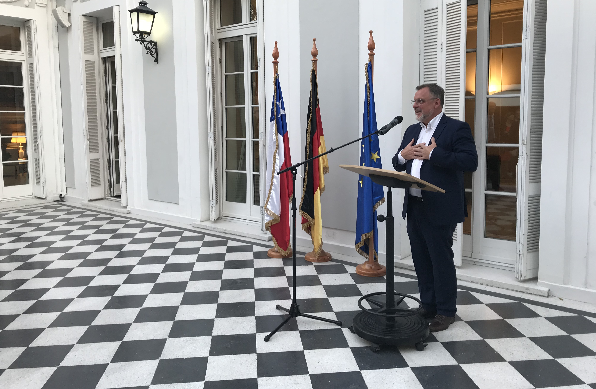
On 11 and 12 October 2018, the IECO and KIT-Chile Cluster team attended the 69th Edition of the Lateinamerika-Tag of the Lateinamerika Verein e.V. in Hamburg. The two-day event was focused on Chile and had a strong emphasis on entrepreneurship and innovation in the context of German-Latin American collaboration.
For the IECO and KIT-Chile Cluster team this activity was remarkably productive, enabling the consolidation of collaboration with the German-Chilean Chamber of Commerce, AHK Chile, as well as the connection with new strategic partners and multiplicators such as ProChile, SOFOFA, and the Chilean Embassy in Germany.
Further information: https://www.lateinamerikaverein.de/de/ueber-uns/lateinamerika-tag-2018/
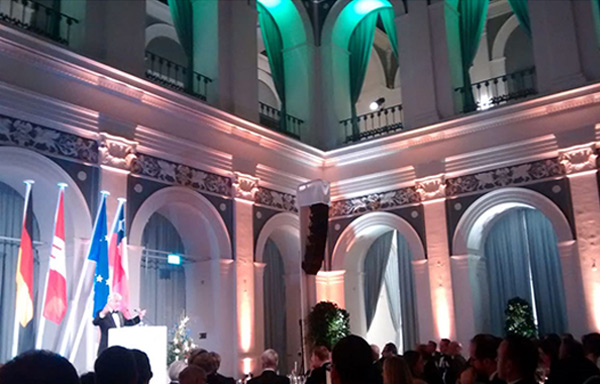
The IECO Coordination Team organized the 7th Annual Meeting of the Network of Chilean Researchers in Germany, Red INVECA, at Campus North of KIT, on 18 and 19 October 2018. IECO has been in close contact with Red INVECA since early 2018 and the network has become an important collaborator and multiplier of IECO. The meeting included a poster session and twelve scientific presentations by young Chilean researchers. In addition, representatives of the Federal Ministry of Education and Research (BMBF), DAAD, DLR and Baden-Württemberg International gave an overview on opportunities of exchange and cooperation between Germany and Chile. The activity also involved the visit of the Chilean Ambassador to whom IECO was introduced.
Highlights of the conference were the welcome speech by KIT Vice-President of Innovation and International Affairs, Prof. Dr. Thomas Hirth, and the speech by the Chilean Ambassador, Mrs. Cecilia Mackenna. Both praised the German-Chilean cooperation and emphasized the importance of internationalization in science. The event was inaugurated by Mrs. Mackenna with the traditional the "Vino de Honor" (Chilean wine with empanadas).
News of RedInveca Event on Website of KIT Office for International Affairs.
News of Ministry of Foreign Affairs of Chile
News of Chilean Embassy website
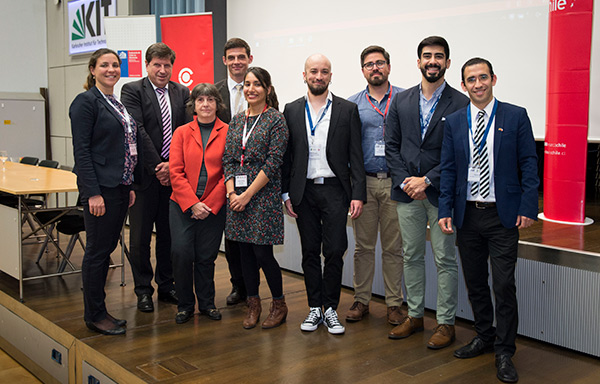
The Federal Ministry of Education and Research (BMBF) hosted the Chile Day at the University Club in Bonn, on 20 and 21 September 2018. They invited scientists and experts interested in cooperating with Chile. The event focused on networking, exchanging research ideas and developing future cooperation activities in Chile.
About 120 scientists engaged in lively discussions and actively took part in competitions for outstanding project ideas, science dating and expert group meetings. DLR, BMBF, CONICYT and others informed about German Chilean funding opportunities. IECO director Prof. Andreas Braun was invited to participate in the expert panel discussion where experiences, opinions and suggestions about a successful cooperation were discussed. Dr. Helmut Lehn, Topic Speaker of Work Package 1, Dr. Fabian Faßnacht, researcher of Work Package 2, and Dr. Sebastian Held, researcher of Work Package 3, also participated in the event.
Announcement of Chile Day by BMBF
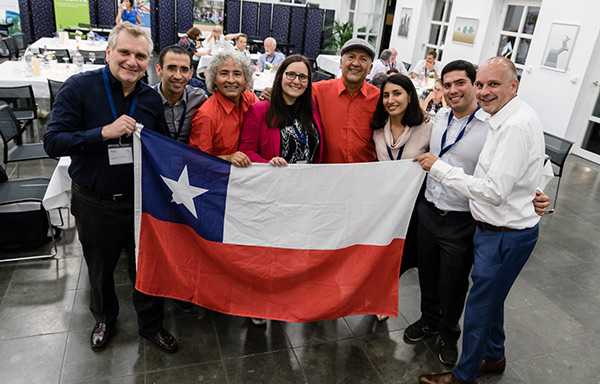
Between the 27th of August and the 6th of September the Direction of IECO and Coordination teams of IECO and the KIT-Chile Cluster visited Chile to consolidate the organizational structures of IECO with the Chilean partners of the institute. For this, Universidad de Chile, Universidad de Concepción and Universidad Austral de Chile were visited at their headquarters. The defined coordination and scientific teams at each university are led by Dr. Diego Morata and Dr. Richard Weber at Universidad de Chile, Dr. Paulina Assmann at Universidad de Concepción, and Dr. German Rehren with the support of Mrs. Nicole Lerdón and Mrs. Cristina Eftimie.
Additionally, the delegation visited other KIT-Chile Cluster partners to foster additional collaboration. In particular, the Faculty of Engineering at Pontificia Universidad Católica de Chile and their Departments of Industrial Engineering and Systems, Electrical Engineering, and School of Civil Engineering, Universidad de O’Higgins in Rancagua, and the Technological Development Unit at Universidad de Concepción.
Further information and media:
- http://noticias.uach.cl/principal.php?pag=noticia-externo&cod=119154
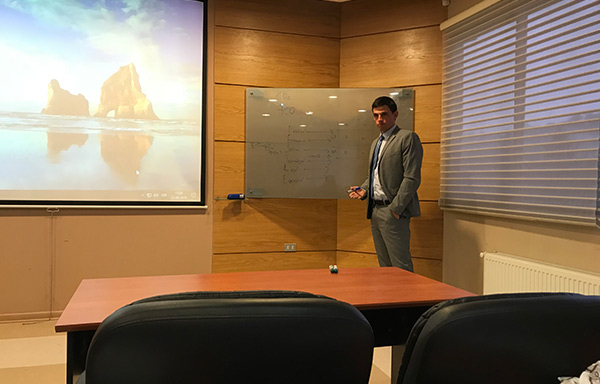
November 1, 2017 marked the culmination of a one-year work process for the researchers at the KIT-Chile Cluster initiative. This is because of the successful application of the German-Chilean Institute of Eco-Industrial Development, IECO, to the Federal Ministry of Education and Research. IECO represents the largest project application of the cluster and its ambition is to establish an institute for the study, research and implementation of eco-industrial solutions in Germany and Chile. To do so, IECO has consolidated cooperation with Universidad de Chile in Santiago, Universidad de Concepción in Concepción, and Universidad Austral de Chile in Valdivia, all of them long term collaborators of the KIT in Chile.
During its initial funding phase IECO will be granted nearly EUR 300,000. After an evaluation in 2019, the consortium will receive another EUR 600,000 for its consolidation phase of three years.
The launch of IECO was performed through a Fact-Finding Mission to Chile during the last week of November, where intense and fruitful meetings were held together with the different Chilean partners of the consortium. In the opinion of Professor Thomas Hirth, Vice President for Innovation and International Affairs of KIT, it is only logical that such an overreaching project has Chile as a focus: “Chile’s economy is growing strongly, the demand for energy will increase – this results in the necessity to invest in renewable energies and increasingly complex technologies. Joint research is the basis.” According to IECO Director, Prof. Dr. Andreas Braun of the Institute of Regional Science: “Many participants were well informed about the country and culture.” This marked the fruitful start of a series of talks “that eventually gave rise to a network identity - a 'we' feeling,” By and by, more than 45 scientists from 17 KIT institutes participated in this process.
The next immediate challenge of IECO consists in developing and implementing the required administrative and organizational structures on both sides of the Atlantic and by each counterpart.
Further information at: https://www.intl.kit.edu/coop/10593.php
